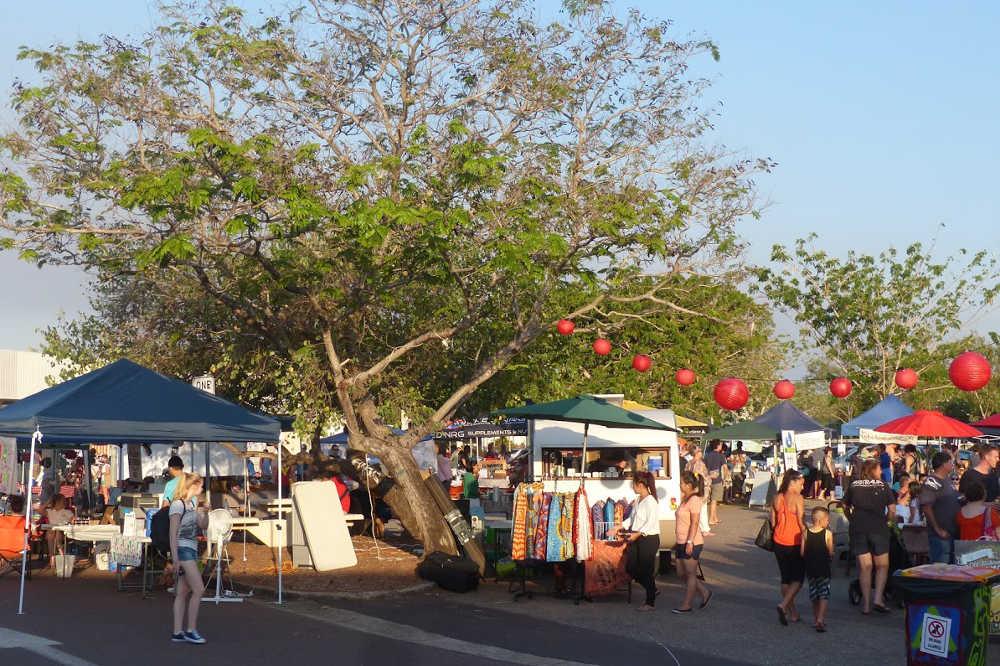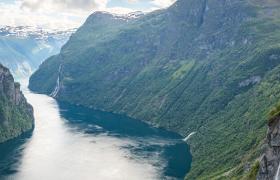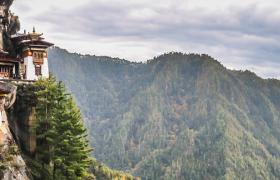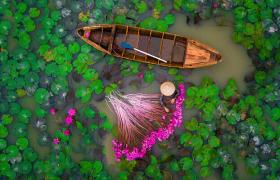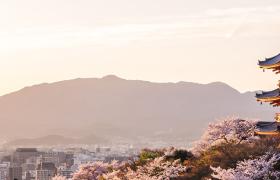There is something about stepping into Darwin’s newest market that feels like time travel. Vintage caravans serve shakes and slices, old-fashioned lemonade cycles through a citrus press, and visitors chat across shared tables over cake and iced coffee.
I have stumbled on the 1950s. The mood is welcoming, the food simple and the scenery sweet – think lanterns slung from tree branches and a lone guitarist sending sung melodies into the fading tropical light.
Past and present
Malak Marketplace sits 14 kilometres north of the city centre and draws its title from the suburb Malak, itself named after an indigenous group from the nearby Daly river. Comprising around 70 stalls, the market is held on Saturday evenings during the Top End region’s 'dry season' (April-November).
After a successful trial in the latter half of this year, in 2016 it will become the city’s latest addition to a suite of six regular food and craft markets – not a bad roll call for a place with just 150,000 residents. It is 7pm and I am queuing for okonomiyaki (Japanese pancake) when a trio of observations shifts my thinking on Malak Marketplace.
First there’s the Congolese food stall, then the Pacific Islander fare, then the abundance of organic farm produce. Perhaps, instead of reflecting halcyon days, these markets offer a microcosm of present-day Darwin: progressive, multicultural and obsessed with outdoor living.
Top End treasures: True Wilderness In Australia's Northern Territory
Red Centre essentials: Australia's Secret Wonderland
Malak is, in fact, a hotbed of internationalism. The suburb is home to recently arrived immigrants, as well as the Multicultural Council of the Northern Territory. Here, bright African fabrics, saris and hijabs are commonplace.
“We’re about something different,” says Marketplace organiser Lina Paselli, comparing her creation to Darwin’s most popular stalwart, Mindil Beach Sunset Markets. “Malak isn’t a place to just grab things and go. Here you can stay all evening and listen to the music. We have a huge piazza area, too, and that lends a community feel – a chance to meet neighbours and explore cultures.”
The dinner I am about to eat bears testament to this. Served from a van splashed with intricately painted circles, the Japanese pancake is whisked together by My Sister’s Kitchen, a women and children’s collective that shares food and recipes from Darwin’s 70-plus ethnic groups.
Sachi Hirayama, the van’s attendant, pops her head through a box-like window. She offers me the finished meal on a paper plate.
I am happy to be sold an accompanying iced tea in a supersized cup. Its savoury sesame flavour catches me off guard – but pleasantly so.
Taste buds satiated, I lounge before the folk-toting musician perched on stage. Time for some idle people watching.
Around me, babies play in their parents’ arms, clusters of teenagers slurp juices and Malaysian laksa, and a trail of visitors weaves a path through neighbouring craft stalls. For families in particular, the arrival of Malak Marketplace forms part of a welcome trend shaping the city’s foodie culture.
Waterfront wonders
In the past 18 months, several outdoor eateries have opened in the city’s northern suburbs. Waterfront zones are particular hot spots.
Nightcliff, six kilometres west of Malak, for instance, has quickly become the city’s food-van hub. This pretty suburb runs alongside an expanse of milky blue ocean and a chain of ochre and white cliffs.
A bike path winds around the beach edges, and along this strip visitors can stop by Jetty & the Fish, a pint-size red van that serves a southern Mexican-inspired fish taco with spicy white sauce, cabbage and coriander. There is also Teardrop Coffee, a pop-up blue and white vintage trailer providing Java brews and sweet treats.
Beyond this rests the popular Cucina Sotto Le Stelle, whose name translates from Italian as 'kitchen under the stars'. The mobile restaurant serves wood-fired pizzas to diners sitting at long communal tables set beneath illuminated flame trees.
A cockatoo’s flight six kilometres north is the most recent arrival amid this hip band of newcomers. De La Plage is housed in a disused surf club storeroom. The cafe occupies a grassy expanse that overlooks Casuarina Coastal Reserve, is run by a Belgian and Australian-Turkish duo, and on weekends hosts bands.
Back at Malak Marketplace, it is now 9pm. As I indulge in dessert – a wedge of 'raw cake' made with coconut, lime and macadamia nut – stallholders begin to pack their wares. In this sun-drenched town, it makes sense to move with the light.
So, too, is it advisable to discard nostalgia. When the present ticks by this enjoyably, time travel seems far less beguiling.
This article was written by Jennifer Pinkerton from The Daily Telegraph and was legally licensed through the NewsCred publisher network.
